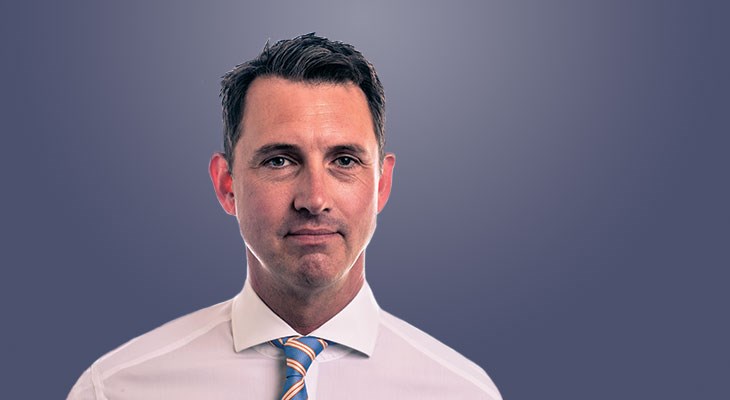Buddy Flerl finds today’s market exhausting, with everybody trying to outrace and outsmart each other with the next great idea.
“I have no jealousy or envy for people that have to wake up every single day and put money to work in crowded markets,” the veteran dealmaker says.
Gone are the days where when you invented a tool, you sold it to Sears and it went into their catalog. Today, you need to make it into a business.
“Capitalism, capital formation and entrepreneurialism are fantastic, but like any good thing, there can be too much of it,” says the former venture capitalist and current chairman of IT company RDX.
Not only does Flerl look at hundreds of deals each year, he also touches thousands of deals indirectly through people in his network or institutional investor representatives in his orbit.
“It can be pretty fatiguing because there’s a lot of rough and not a lot of diamonds out there — that’s for sure,” he says.
Smart Business Dealmakers spoke with Flerl about what he’s seeing in the market and his approach to dealmaking.
Buddy Flerl is one of the 40 host committee members who is shaping the Smart Business Dealmakers Conference (formerly ASPIRE), presented by Metz Lewis, which will be held March 5, 2020, at the Wyndham Grand Pittsburgh Downtown.
Awash with capital
Flerl has not only invested in and been a director and board member of many companies, he also ran 21 Ventures, a venture capital fund for a while.
Most recently he was the CEO of RDX, an independent IT infrastructure, cloud and database administration managed service provider. Shortly after he bought the Pittsburgh business, the CEO decided to go in a different direction. Flerl, who wasn’t planning to join the company, took over and began looking for a replacement. It took a decade to find the right one, and last month he pared his role back to just chairman.
However, Flerl joined the dealmaking world around the time of the dot-com crash when software companies generally didn’t have financial statements that matched the amount of money they raised and spent.
“My journey in this universe began by dealing with a lot of disappointed post-bubble-pop sobering realities with people,” he says.
Flerl remembers at one point, at the peak of the bubble, one European supply chain software vendor’s revenue was in the low single digit millions. With a great piece of technology, they raised and spent around $30 million, which was typical at the time.
That company received an offer from a large strategic for close to $100 million — that would have returned about 3x on the investment. Although Flerl recommended the business take the deal, it declined. A year later, after the crash, the company was sold for about $8 million.
“Needy I can understand,” he says. “Greedy I have a tougher time with.”
Like many others, Flerl sees parallels today to 1999 or even 2006-2007, with the abundance of capital.
For a healthy market, both buying and selling needs to be working, and as asset sizes increase, they naturally go up in value organically, he says.
“I think that a lot of people would agree there is an inorganic portion of the asset inflation that we’re seeing right now that will at some point self-correct,” Flerl says. “Whether or not that happens in the form of a recession, alongside a recession, it’s hard to tell. But there will be some wash out that, at the very least, will create a little bit of downward pressure on multiples at some point in the next few years.”
Sticking to fundamentals
Flerl takes an old school approach to investing. He looks for honesty, good decision-making, transparency and strong fundamentals.
“Any investment that I come in, I always ask myself every day, ‘Would I buy it at today’s price?’” he says. “The answer needs to be yes, if I’m still in the investment. That statement, while very simple, can force a lot of good self-governance around the concept of buying and selling at a number of levels in the economy.”
Today’s market includes buying at inflated prices that Flerl wouldn’t touch. “Leverage and debt have a lot to with that — OPM, other people’s money,” he says.
For example, Flerl looked closely at making a majority investment in a medical device company. However, the current owners felt like it was worth much more than Flerl felt it was worth.
“I gave that frog a kiss, it didn’t turn into anything, and moved down to the next one,” he says.
It’s also important to remember that dealmaking is always going to have unknowns.
Flerl says even if your timing is perfect, you’re working with saints and everything lines up, when it comes to a transaction, there’s plenty that could go wrong. Sometimes a new buzzword that sounds disruptive can wash through the investment community that doesn’t truly understand it, such as cloud, big data and blockchain.
When talking about cute business models and everyone trying to outthink each other and scale, an easy example is WeWork, Flerl says, which he calls entertaining as a Netflix movie.
“There are great businesses,” he says. “There’s great stuff happening, and there always will be. But there will also be plenty that is not great, that just sounds cool and attracts a lot of noise and attention.”
The slow and steady ones don’t necessarily get the prime time coverage, but those could be the better investments.




